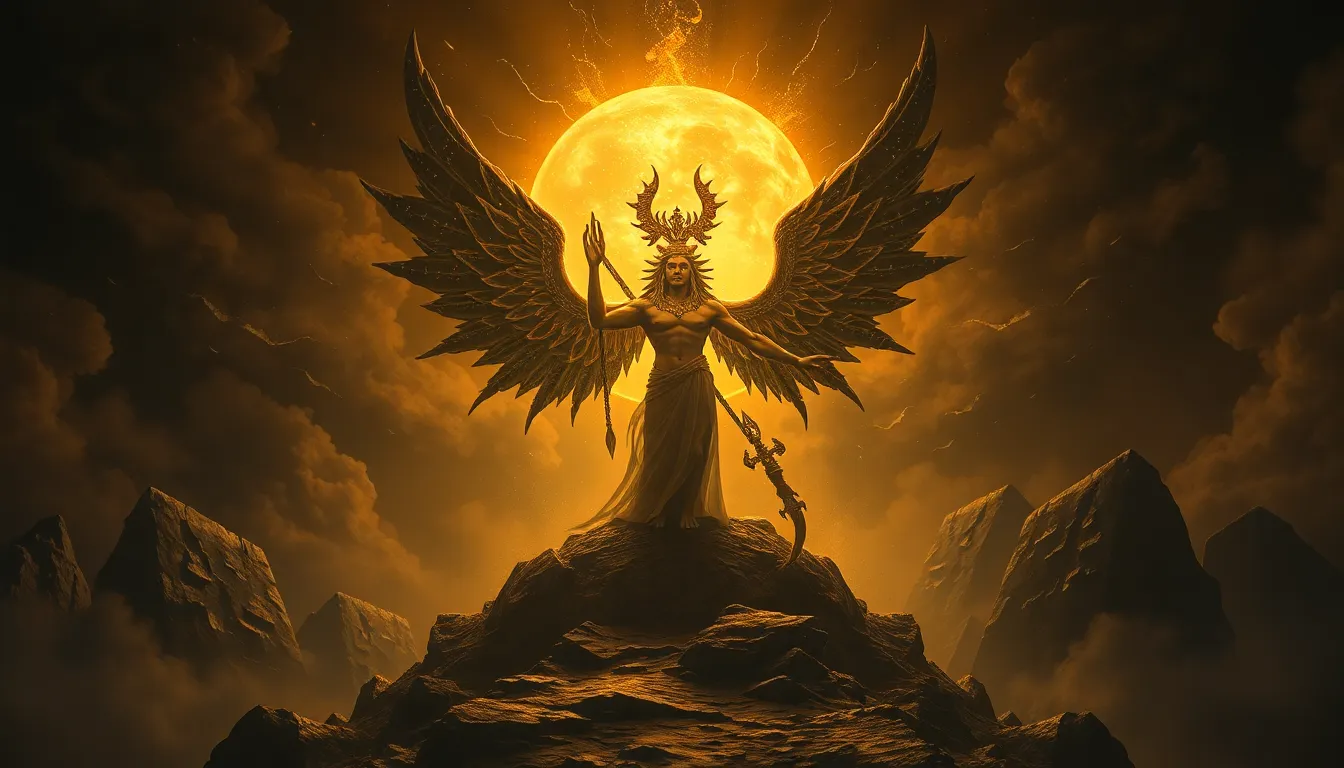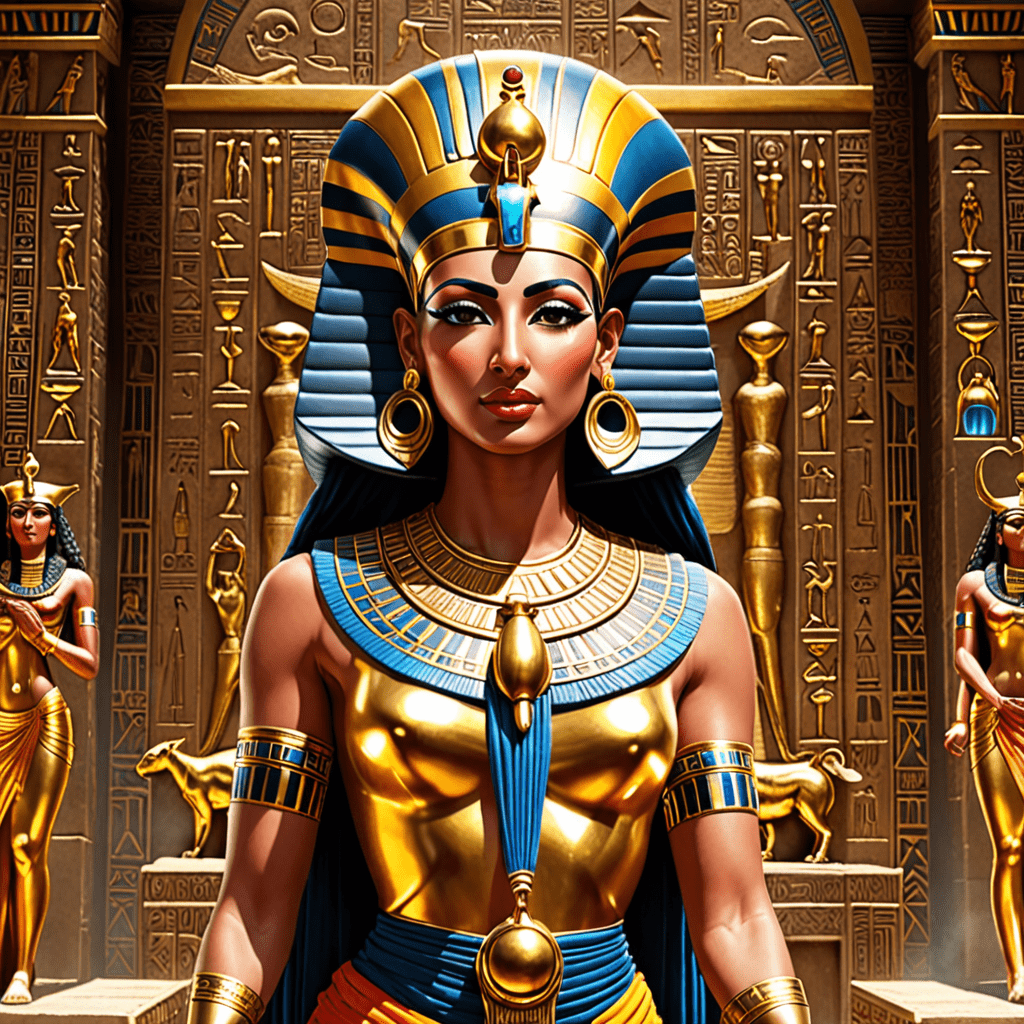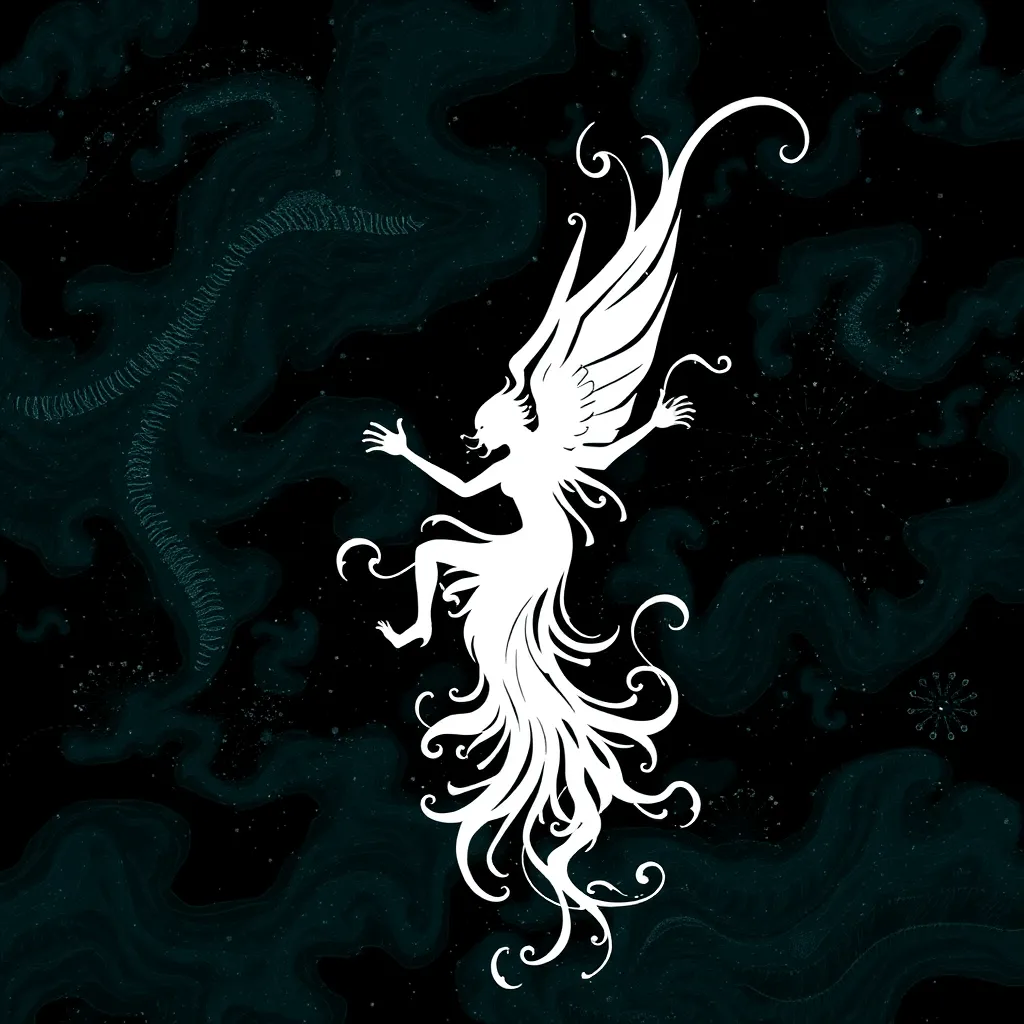The Influence of Ancient Deities on Language and Literature
1. Introduction
Ancient deities have played a crucial role in shaping the cultural landscapes of various civilizations throughout history. These divine figures, often embodying nature, virtues, and human traits, have been central to the myths and narratives that define a culture’s identity. The relationship between deities, language, and literature is profound, as the stories and characteristics of these gods influence both the vocabulary and the themes found in literary works.
The purpose of this article is to explore the multifaceted influence of ancient deities on language and literature, examining their contributions to vocabulary, literary symbolism, archetypes, and the evolution of language itself. By analyzing various aspects of this relationship, we aim to highlight the enduring legacy of these deities in contemporary storytelling.
2. The Role of Mythology in Language Formation
Mythology serves as a rich source for language, contributing to vocabulary and expression in profound ways. Many words and phrases we use today are directly derived from ancient deities or their associated myths. The influence of these divine figures extends beyond mere names, shaping our understanding and descriptions of human experiences.
- “Herculean”: This term describes an effort that requires great strength or effort, derived from the legendary hero Hercules, known for his incredible feats.
- “Odyssey”: This word refers to a long and eventful journey, originating from Homer’s epic poem “The Odyssey,” which chronicles Odysseus’s adventures.
These examples illustrate how ancient deities have provided a linguistic framework that continues to enrich modern language.
3. Symbolism and Imagery in Literature
Ancient deities have inspired countless literary themes and motifs, serving as symbols of various human experiences. Literature is replete with references to divine figures, which help convey deeper meanings and emotions.
For instance, in Homer’s “The Iliad,” the wrath of Achilles can be seen as a representation of human pride and the consequences of anger. Similarly, in “The Odyssey,” Odysseus’s journey can symbolize the quest for identity and belonging.
These works exemplify how ancient deities not only populate narratives but also provide a lens through which readers can explore complex human emotions and societal values.
4. Archetypes and Character Development
Many literary characters are based on archetypal figures derived from ancient mythology. These archetypes, such as the hero, the trickster, and the wise elder, often shape the narrative structures across genres.
- The Hero: Characters like Odysseus or Hercules embody the hero archetype, undertaking quests that test their strength and morality.
- The Trickster: Figures like Loki from Norse mythology challenge norms and provoke thought through their cunning and unpredictable behavior.
These archetypes resonate with audiences, providing familiar frameworks that inform character development and plot progression in literature.
5. Language Evolution and Cultural Exchange
The influence of ancient deities extends to the development of languages such as Latin and Greek. The religious and cultural significance of these deities facilitated the exchange of ideas and linguistic elements across regions.
Trade, conquest, and colonization often led to the merging of languages and literary traditions, resulting in a rich tapestry of expression influenced by divine figures. For example, the Roman pantheon adopted and adapted Greek gods, leading to linguistic and cultural intermingling that shaped both languages.
6. Religious Texts and Literary Forms
Ancient religious texts such as the “Epic of Gilgamesh” and the “Rigveda” hold significant literary value. These texts not only convey ancient beliefs but also showcase narrative styles and genres that influenced later literature.
The “Epic of Gilgamesh,” for example, is one of the earliest known works of literature, exploring themes of friendship, mortality, and the quest for knowledge. Its structure and storytelling techniques can be seen echoed in many subsequent literary traditions.
7. The Influence of Ancient Deities in Modern Literature
Contemporary authors frequently draw inspiration from ancient mythologies, reinterpreting these narratives for modern audiences. Writers like Neil Gaiman and Rick Riordan have infused their works with references to ancient deities, making them accessible and relevant to today’s readers.
For instance, Riordan’s “Percy Jackson” series introduces Greek mythology to a younger audience, allowing readers to engage with these ancient stories in a fresh context.
8. Translation and Interpretation of Mythological Texts
Translating ancient texts presents unique challenges, particularly regarding the mythological elements that may not have direct equivalents in modern languages. Translators play a critical role in preserving the influence of deities in language and literature.
Accurate interpretation is essential for maintaining the cultural significance of these texts, ensuring that the richness of ancient narratives continues to resonate with contemporary readers.
9. Cultural Appropriation and Representation
As ancient deities find their way into modern adaptations, the issue of cultural appropriation arises. It is crucial to approach the representation of these figures with respect and understanding of their origins and significance.
- Challenges: Misrepresentation can lead to the commodification of sacred symbols and stories.
- Importance: Respectful representation fosters a deeper appreciation for diverse cultures and their mythologies.
Literature that honors the cultural contexts of ancient deities enriches the narrative and promotes a greater understanding of the source material.
10. Conclusion
The influence of ancient deities on language and literature is extensive and profound. From the vocabulary we use to the archetypes that populate our stories, these divine figures continue to shape our cultural narratives. The legacy of ancient deities is evident in contemporary literature, where their stories and characteristics are reimagined for new generations.
As we reflect on the lasting impact of these deities, it becomes clear that the intersection of mythology, language, and literature offers a rich field for further exploration. Understanding this dynamic relationship encourages us to appreciate the depth and complexity of our literary heritage.



